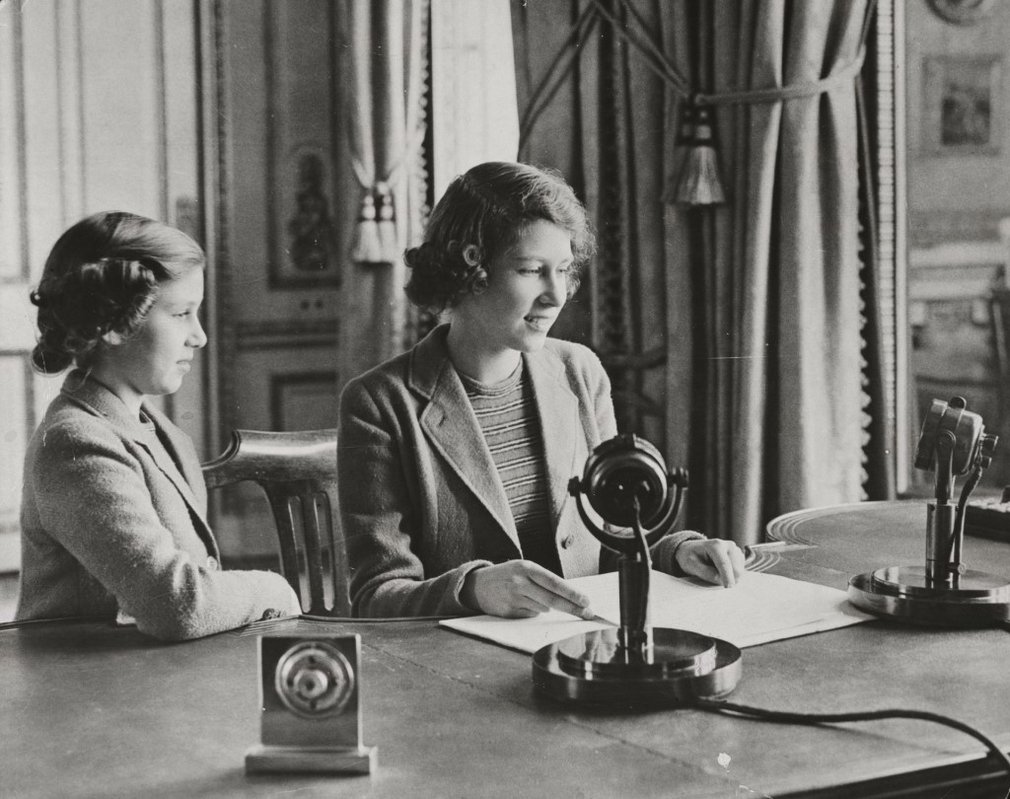Western Hemisphere: Canada, Antigua, the Bahamas, Belize, Grenada, Jamaica, St. Kitts, St. Lucia, St. Vincent.
Middle East: Bahrain, Jordan, Kuwait, Morocco, Oman, Qatar, Saudi Arabia, and the United Arab Emirates.
Europe: Andorra, Belgium, Denmark, Liechtenstein, Luxembourg, Monaco, the Netherlands, Norway, Spain, Sweden, United Kingdom.
Asia: Bhutan, Brunei, Cambodia, Japan, Malaysia, Thailand.
Africa: Lesotho and Swaziland.
Pacific: Australia, New Zealand, Papua New Guinea, Solomon Islands, Tonga, Tuvalu.
Economist editor and poli. sci. pioneer Walter Bagehot explained in 1867 that monarchies hold public support better than republics because, being personal and symbolic rather than abstract and confusing, monarchies are more fun:
“Royalty is a government in which the attention of the nation is concentrated on one person doing interesting actions. A Republic is a government in which that attention is divided among many, who are all doing uninteresting actions.”
Recent TV statistics illustrate his thought in practice: 13.4 million Britons are said to have watched Queen Elizabeth II’s Platinum Jubilee ceremony last year, while a modest 1.3 million watched the 2019 Parliamentary debate on Brexit. Barbara Tuchman’s famous Guns of August introduction evokes the same mood with a bit less cynicism:
“So gorgeous was the spectacle on the May morning of 1910 when nine kings rode in the funeral of Edward VII of England that the crowd, waiting in hushed and black-clad awe, could not keep back gasps of admiration. In scarlet and blue and green and purple, three by three the sovereigns rode through the palace gates, with plumed helmets, gold braid, crimson sashes, and jeweled orders flashing in the sun. After them came five heirs apparent, forty more imperial or royal highnesses, seven queens—four dowager and three regnant—and a scattering of special ambassadors from uncrowned countries. Together they represented seventy nations in the greatest assemblage of royalty and rank ever gathered in one place and, of its kind, the last. The muffled tongue of Big Ben tolled nine by the clock as the cortege left the palace, but on history’s clock it was sunset, and the sun of the old world was setting in a dying blaze of splendor never to be seen again.”
Fifteen decades later, as the U.K. prepares for a similar event for his great-granddaughter next Monday — a moment of “sunset on history’s clock”, with attendant reflections on a life stretching from the Second World War, through the transition from Edward’s empire to Elizabeth’s Commonwealth, 15 Prime Ministers, etc., across seven decade of public service to the third decade of the 21st century — monarchy still seems to catch national and global imagination. Of the world’s 195* independent countries, 42 are monarchies — 15 Commonwealth realms including the U.K. itself, along with eight in the Middle East, one (Tonga) in the Pacific, two in sub-Saharan Africa, six in Asia, and 10 in continental Europe. R.I.P to a unique figure, and our sympathy with U.K. and Commonwealth friends this week.
* Using the State Department’s count of countries.

Some looks back:
Then-Princess Elizabeth’s Children’s Hour broadcast during the Blitz in 1940 (pictured above).
The Platinum Jubilee weekend.
More highlights on the life of Queen Elizabeth II from The Commonwealth.
Two takes:
Walter Bagehot explains the populist appeal of monarchy.
And Tuchman’s The Guns of August, in which after the intro the Kaiser takes a lot of interesting actions but non-royals do so as well.
Eight current monarchies:
The British royal household.
The Japanese monarchy is the oldest in the world, predating the fall of the Roman Empire by at least 70 years: Japan’s Imperial Household Agency.
Thailand’s King Rama IX reigned from 1946 to 2016, equalling Elizabeth’s 70 years. Thailand’s Royal Office.
King Letsie of Lesotho marks his 25th year this October 13.
King Tupou IV of Tonga.
King Abdullah II of Jordan.
Oman’s Sultan Haitham bin Tariq.
And Danish Queen Margarethe, who marked 50 years last January, traces her antecedents back to a Viking named Gorm the Old (~ 900 A.D.) She is also queen of Greenland and the Faeroes Islands, technically autonomous realms “under the Danish crown.”
Also:
The current global count of monarchies is a bit less clear than the “42” figure suggests, since many countries retain hereditary ruling kings and queens of regions and ethnic groups incorporated in larger countries. Three examples:
Ed Gresser is Vice President and Director for Trade and Global Markets at PPI.
Ed returns to PPI after working for the think tank from 2001-2011. He most recently served as the Assistant U.S. Trade Representative for Trade Policy and Economics at the Office of the United States Trade Representative (USTR). In this position, he led USTR’s economic research unit from 2015-2021, and chaired the 21-agency Trade Policy Staff Committee.
Ed began his career on Capitol Hill before serving USTR as Policy Advisor to USTR Charlene Barshefsky from 1998 to 2001. He then led PPI’s Trade and Global Markets Project from 2001 to 2011. After PPI, he co-founded and directed the independent think tank Progressive Economy until rejoining USTR in 2015. In 2013, the Washington International Trade Association presented him with its Lighthouse Award, awarded annually to an individual or group for significant contributions to trade policy.
Ed is the author of Freedom from Want: American Liberalism and the Global Economy (2007). He has published in a variety of journals and newspapers, and his research has been cited by leading academics and international organizations including the WTO, World Bank, and International Monetary Fund. He is a graduate of Stanford University and holds a Master’s Degree in International Affairs from Columbia Universities and a certificate from the Averell Harriman Institute for Advanced Study of the Soviet Union.
Read the full email and sign up for the Trade Fact of the Week